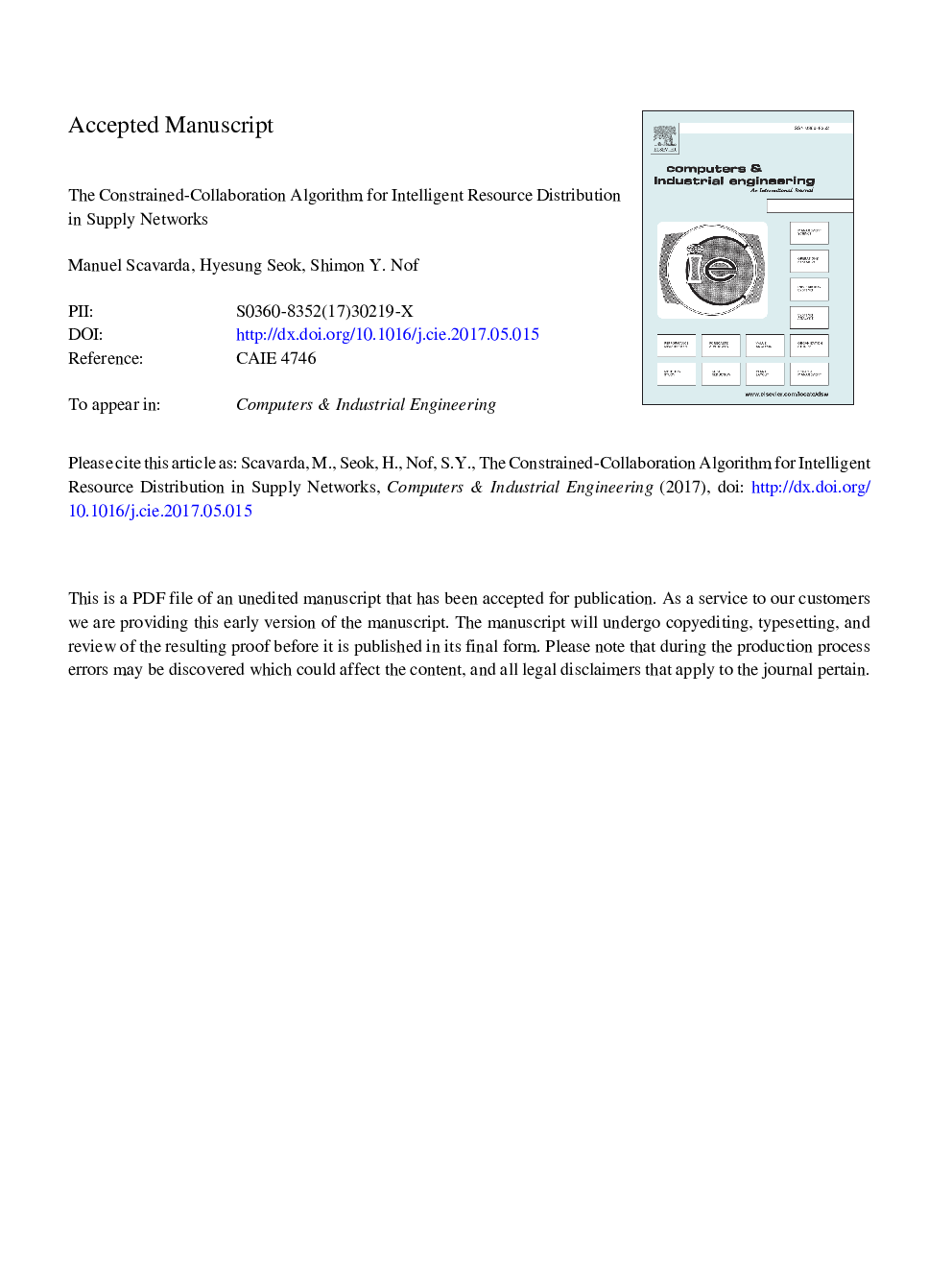| Article ID | Journal | Published Year | Pages | File Type |
|---|---|---|---|---|
| 7541872 | Computers & Industrial Engineering | 2017 | 36 Pages |
Abstract
Manufacturing and supply strategies have evolved from the notion of mass production focusing on economies of scale, to flexible production systems seeking economies of scope, and recently, to the concept of enterprise and supply networks aiming for economies of collaboration. The emergence of supply networks poses new challenges derived from a growing complexity in coordinating the flow of resources, materials, and information within and among an increasing number of network participants. In such situations, an intelligent resource distribution under various constraints is one of the most critical problems. In this paper, we have developed a novel Constrained-Collaboration Algorithm (CCA) for physically cooperative resource distribution planning. Based on Collaborative Control Theory (CCT) with theoretical formulations and network flow approaches, the CCA addresses an efficient and effective resource distribution by a suitable form of physical cooperation. We have applied it to an actual industry case, in combination with Direct/Indirect Delivery Protocol (DIDP), introduced in previous research. As a result, the integrated model achieves 55% increase in resource utilization and 20% reduction in distribution cost, while accommodating external changes. Besides, the new formalism of the physical dimension of collaboration requirement planning introduced in this research with new CCA approach can be generalized for other improvements in supply-and-demand management decision support.
Related Topics
Physical Sciences and Engineering
Engineering
Industrial and Manufacturing Engineering
Authors
Manuel Scavarda, Hyesung Seok, Shimon Y. Nof,
